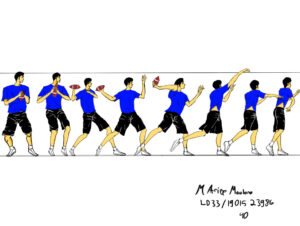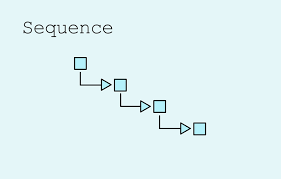Coding can be a difficult concept for some to adapt to. There is a growing narrative that if you want to have a job in the future you will need to know how to code. This is a narrative that has been pushed for a couple years now and has aided in the growth of coding as a whole. No society has progressed a lot, technologically, over the past few years and there are a variety of jobs where coding is one of the main functions of the job. However, to say that the only jobs you can get are in coding is just using buzz words to get people to pay attention. This then brings up the conversation of, “well is the purpose of school job training” and that is another whole can of worms.
When it comes to coding and well anything we teach in school, I enjoy the idea of it for the process and the problem solving skills that it helps bring on. Coding is essentially putting things in a specific order, or following a process, to accomplish something. When it comes to more primary grades learning a process or a system of doing things is similar to students learning the process of mathematics or writing a sentence. There is a certain order of doing things, and if one thing goes wrong, the whole thing goes wrong. This is also a very behaviorist method of teaching, but when it comes to the more primary grades understanding the process is great because when they are more developed, cognitively, in the future, they can begin to utilize these processes they have learned to be able to share, create, and explore in their own ways. They just need the foundations first.
As a phys ed teacher, I can relate coding to the completion of a movement pattern. When I teach student how to “send” or “throw” an object I have a set number of smaller movements/cues for them to follow to be more successful. A simple throwing of a ball can be broken down into 5 mini steps. A beginning, transition, middle, transition, and an end. If one thing in the sequence is off, the whole thing can be thrown off. As discussed, coding is very similar. As students get more comfortable with throwing a ball, they can begin to utilize it in drills, games, etc. How I view coding is in a similar manner.

What I think could be a hinderance is that most children learn how to throw a ball when they’re very young, coding isn’t necessarily taught at young ages and trying to teach something like this at an older age could potentially be hard. Learning a skill or even a language at an older age is harder compared to a student that learned it at a younger age and has continuous practice. If my students have never learned anything about coding is it worth taking it up in the high school setting and focusing on all these basics, when other students their age could be miles ahead?

To be honest, I think so. Coding is something that many people pick up as they age into adolescents or even not until adulthood. It takes work of course, but there are a lot of external learning resources and even university classes dedicated to the topic. Many people steer away because they think it is too late for some to learn. As coding becomes more and more mainstream, maybe this will happen though. With students beginning to learn it earlier and earlier a knowledge/skill gap could potentially begin to form and now it isn’t as manageable to learn it later in life if you are “competing” against people that have been doing it their whole lives. I use “competing” because, again, is that the only reason we teach stuff? Do get people jobs? As a phys ed teacher I know what I’m teaching will not make students be able to get a job. What it can allow for is students to be confident and competent, be healthy, and maybe find something they enjoy doing or are passionate about. I think coding could be a similar thing. It could be good to know how to do it, what it could lead to, and who knows maybe somebody does really enjoy it, but just as a hobby in their spare time. I feel like that is still a major win.
Of course I have to mention the drawbacks to this. Not everyone has access to technology in their school divisions, or if they do, there aren’t enough to go around. Many teachers don’t know anything about it and are too scared to learn as they don’t want to seem clueless in front of their students. Many just also feel that they can accomplish the outcomes of the curriculum in an easier manner, and who doesn’t love it when things are easier? What I think is really holding teachers back is the extra effort and resources that it could take for this to be accomplished. Teachers are already busy and don’t always have the prep time or professional development opportunities for them to learn it. Asking them to learn on their own time is also a little unfeasible when they already have so much going on. If there was easier access or school division based training opportunities, well then maybe I could see more teachers getting onboard.

Greg, I really appreciate your realism on this topic. At the end of the day the resources and time to do this would be very difficult. It is daunting! I also love your analogy how coding relates to physical education. I did the Kin-Ed combined program at UofS so as a fellow phys.ed teacher this makes so much sense to me! The steps to a movement creates a product of a full or complete movement. I never thought about coding this way and I love it!
Hey Greg, I like your blog post as it challenges the narrative surrounding coding as a mandatory job skill, highlighting its value beyond mere employment prospects. Drawing parallels between coding and fundamental learning processes, like problem-solving, underscores its importance in education. The comparison to phys ed teaching methods offers a fresh perspective, emphasizing the sequential nature of both activities and the potential benefits of introducing coding skills early on, despite logistical challenges and resource limitation.